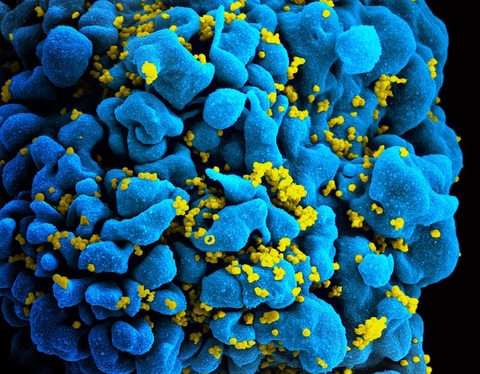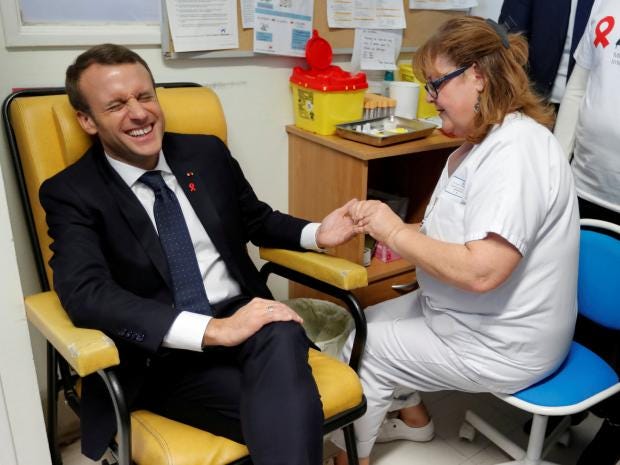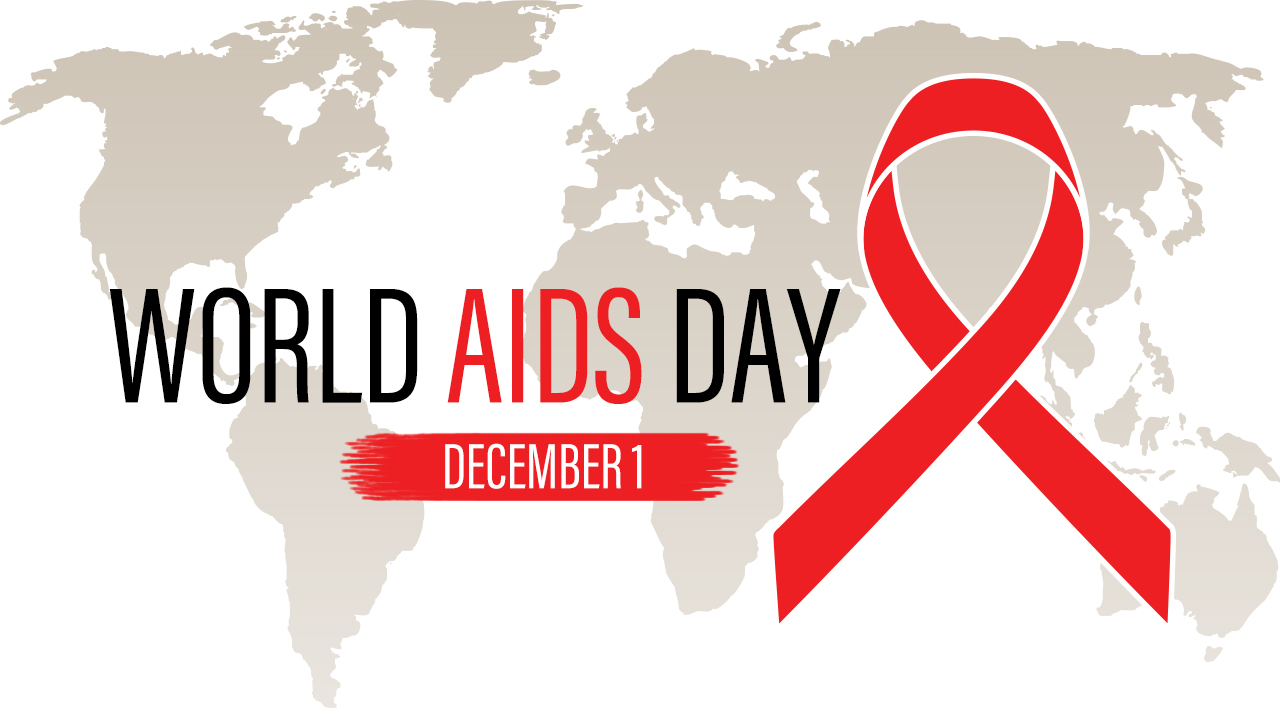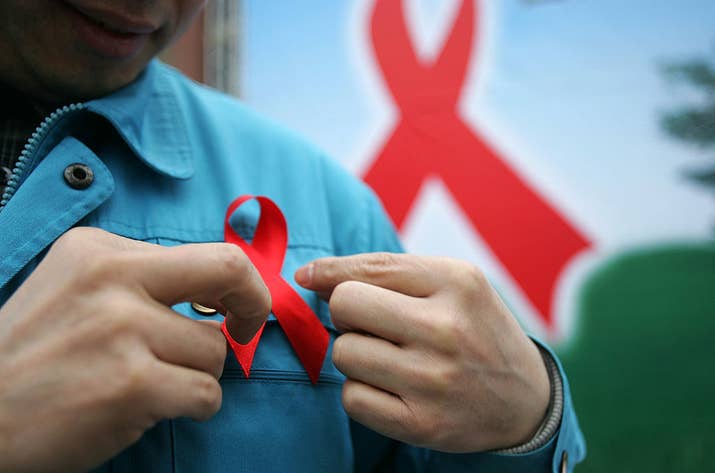HIV / AIDS News

HIV / AIDS News

August
Hunky Broadway star Hernando Umana: “I am a proud gay man living with HIV”

It had been drilled in my head that gay people get HIV because of wrong doings and they deservingly die from it. Well I’m here to shut that sh*t down. There is NOTHING wrong with me and I am healthier than I’ve ever been. In the last 10 years I’ve met countless of HIV positive men. Some of these men are so affected by the stigma that they don’t tell a soul about their status, even go as far as not taking their medication.
Continue Reading:
Study Indicates Greater Standard of Health Care As A Result Of PrEP Use
Daily HIV Treatment Could Soon Be Replaced With Once-A-Month Injection
Research Indicates that “on-demand PrEP” Could Work for Gay Men
July
BBC South East Today
A Brighton-based charity has launched a campaign to erase stigma around HIV.
A series of films and animations will run across social media with the aim of reducing misconceptions and challenging current perspectives around HIV.
For further information please visit:
www.themartinfisherfoundation.org/makinghivstigmahistory

Campaign launched in Brighton to tackle HIV stigma

The Martin Fisher Foundation launched its Making HIV-Stigma History campaign on Thursday, hoping to create an HIV stigma-free society and encourage more people to come forward for testing.
According to Public Health England 12 per cent of people living with HIV in England are unaware of their diagnosis.
Continue Reading:
https://www.brightonandhoveindependent.co.uk/news/health/campaign-launched-in-brighton-to-tackle-hiv-stigma-1-8573499
Brighton campaign launches to make HIV stigma history

The Brighton-based Martin Fisher Foundation has launched their Making HIV-Stigma History campaign. A series of short factual films and animations are running across social media platforms, with the aim of reducing misconceptions and challenging current perspectives around HIV.
By improving knowledge and reducing fear, the Foundation hopes to create an HIV-stigma free society and encourage more people to come forward for testing. According to Public Health England 12% of people living with HIV in England are unaware of their diagnosis.
The Making HIV-Stigma History campaign mantra ‘We Learn, We Think, We Change’ emphasises how important it is for everyone to have the correct information about HIV and to share this message. The Foundation aims to change the emphasis from whether individuals are positive/negative and dirty/clean, to whether they are tested/untested.
Dr Carlos Peralta, a senior design lecturer from the School of Architecture and Design at the University of Brighton, who led the design and creative aspects of the campaign said: “We have an opportunity to tackle HIV-stigma head-on. If people are tested, diagnosed and treated then there is a real chance of eliminating HIV altogether. A lot has changed in recent years but stigma and misinformation about HIV are still widespread.
Continue Reading:
http://www.bn1magazine.co.uk/49389-2/


Welcome to the Next Deadly AIDS Pandemic
Physicians Should Look Out for Neurosyphilis in Gay Men With HIV
With syphilis resurgent among men who have sex with men (MSM) in the United States, researchers are calling on clinicians to maintain greater vigilance in spotting neurosyphilis cases among HIV-positive MSM in particular, Pharmacy Times reports.
If their syphilis infection goes untreated, approximately 25 to 40 percent of individuals will develop neurosyphilis, which occurs after about 10 to 20 years as a result of the sexually transmitted infection infecting the brain and spinal cord.
When people with HIV contract syphilis, the bacterial infection increases HIV viral load in cerebrospinal fluid. Additionally, HIV-positive individuals are more likely to see their syphilis infection fail to respond to antibiotic treatment for the initial infection; they require a more aggressive treatment approach than is standard.
Continue Reading:
https://www.poz.com/article/physicians-look-neurosyphilis-gay-men-hiv
Related Haemophilia article:

2nd June 2015
A cohort pilot study on HIV-associated neuropsychological impairments in hemophilia patients
Despite advances in the management of HIV infection with the introduction of combination antiretroviral therapy, it is well known that HIV can directly infect the central nervous system and, as a result of such infection, neuropsychological impairments can be manifested. In this study, we tried to determine whether seropositivity was associated with a poor neuropsychological performance in patients with hemophilia and HIV. Such a cohort of patients is very often underrepresented and understudied in the HIV literature. To amend such a gap, we carried out an extensive neuropsychological evaluation on these patients, and compared their performance with that of a group of seronegative hemophilia patients. The results revealed that HIV infection in HIV-seropositive (HIV+) hemophilia patients was associated with deficits in attention, short-term memory, abstraction, and visual recognition. Such results are still preliminary and explorative due to the small cohort of patients enrolled. However, the results do seem to have some important implications for day-to-day functioning, as the level of impairment detected may cause difficulties in completing common everyday tasks such as maintaining adherence to complex medication regimens or maintaining social life activities. Continued research into the mechanisms related to HIV and neurocognitive dysfunction may provide targets for interventions that could have meaningful consequences in the real world for HIV hemophilia patients.
Continue Reading:
https://www.frontiersin.org/articles/10.3389/fnhum.2015.00313/full
Online HIV prevention programme reduces STIs by 40% in young men who have sex with men
An interactive online programme, tailored to real-life contexts of ethnically diverse young American men who have sex with men (MSM), resulted in a substantial drop in sexually transmitted infections (STIs) and a fall in condomless anal sex, according to the results of a randomised trial reported in the American Journal of Preventive Medicine.
The Keep It Up! programme “represents a scalable and cost-effective way to deliver behavioural prevention,” the researchers say.
Keep It Up! is an interactive online HIV prevention intervention tailored to ethnically diverse MSM, aged 18 to 29. It uses videos, interactive animations and games to provide information, motivate and teach safer behaviours and instil self-efficacy for prevention strategies.
Each of the nine modules is based on a particular setting or situation that is relevant to men’s lives, such as hooking up online; assumptions about HIV status and monogamy in relationships; the impact of alcohol, drugs and sexual arousal on condom use; power dynamics in a relationship with an older man; and regular HIV testing.
Continue Reading:
Condom efficacy may have been underestimated, new CDC study suggests
A new meta-analysis (Johnson) of the efficacy of condoms in preventing HIV transmission via anal sex between gay men has found a considerably higher estimate of their efficacy than two previous analyses.
June
Frailty in men with HIV linked with bone weakness, muscle loss and large waist
Frailty is twice as prevalent in middle-aged and elderly HIV-positive men as in their HIV-negative peers, investigators from the Multicenter AIDS Cohort Study (MACS) report in AIDS. Risk factors were abdominal obesity, loss of skeletal muscle mass (sarcopenia) and osteoporosis and these did not differ by HIV status. Men with HIV with the highest waist measurements were seven times more likely to be living with frailty than men with lower waist measurements.
Closeted Men Underestimate HIV Risk and More Likely to Transmit HIV?
Elton John Just Blasted The Government For “Savage Cuts” To Sexual Health Services
“This fight is being harmed by a lack of investment,” the rock star said at the Diana, Princess of Wales Memorial Lecture on HIV.

National AIDS Trust (NAT): Diana, Princess of Wales Lecture on HIV
Gay Men Encouraged to Drop Their Load in New Ending HIV Campaign

Many young MSM discontinue PrEP
A third of young men who have sex with men (MSM) who take pre-exposure prophylaxis (PrEP) discontinue it within a six-month period, investigators from the United States report in AIDS and Behavior. Common reasons for stopping included being unable to get an appointment with a doctor and problems with insurance coverage.
“The two most common factors for discontinuation of use…are systemic barriers, indicating that more needs to be done to increase PrEP for those who are at high HIV risk,” write the investigators. “One potential solution may be to enable service providers, such as local health departments, to incorporate proactive services for high-risk HIV-negative individuals.”
http://www.aidsmap.com/Many-young-MSM-discontinue-PrEP/page/3276627/

Kidney function declines faster in men on HIV treatment than for their HIV-negative peers
Loss of kidney function in men with HIV is most strongly associated with antiretroviral therapy, an 11-year study of men living with HIV and their HIV-negative counterparts has found. The study found that men with HIV lost twice as much of their kidney function each year as men without HIV – although the average rate of loss was less than 1% a year.
Prolonged treatment with tenofovir (TDF) or atazanavir increased the risk of a more rapid reduction in kidney function within a single year, but no specific drug was shown to lead to a consistent decline in kidney function throughout the 11-year follow-up period.
May

With TV ads, drugmaker Gilead brings HIV prevention drug out of the closet
In a major shift, pharmaceutical giant Gilead Sciences will begin airing television ads for PrEP, its HIV prevention medication. The company said the ads, which will start in June and run through August, are “designed to encourage candid conversations around sexual health and promote public awareness of HIV prevention.”

‘Risky when young’ or ‘risky with age’: Dutch study identifies life patterns associated with higher HIV risk in gay men
A Dutch study which looked at the way gay men’s risk of HIV changed with time has used statistical analysis to isolate two kinds of ‘risk trajectory’ that are associated with a much higher-than-average lifetime risk of HIV. Averaged over their ‘risk career’, these gay men, who between them formed 10% of the men studied, had a five times greater risk of acquiring HIV than other men in the study, equating to a one-in-three risk of HIV infection within ten years.

Living with HIV more than doubles the risk of erectile dysfunction in middle-aged MSM
Living with HIV is an independent risk factor for erectile problems among middle-aged men who have sex with men (MSM), Dutch investigators report in the online edition of AIDS. After taking into account all other risk factors, HIV infection was associated with a more than doubling in the risk of erectile dysfunction.

Prostate cancer and lung cancer projected to be most frequent cancer diagnoses in people with HIV by 2030
Prostate and lung cancer will become the most frequently diagnosed cancers in people living with HIV in the United States by 2030 if current trends in new cancer diagnoses continue, an analysis by the US National Cancer Institute shows.

Why aren’t older people tested for HIV? Views from doctors and patients
Limited knowledge of HIV and stereotypes about who may have HIV are barriers to HIV testing in people over the age of 50, with similar issues affecting both clinicians and older people themselves, according to a pair of qualitative studies presented to the recent joint British HIV Association (BHIVA) and British Association for Sexual Health and HIV (BASHH) conference in Edinburgh.
April

HIV diagnoses in Brighton started to fall before London and for different reasons
New HIV diagnoses in Brighton & Hove have fallen by half since 2013, according to a poster presented at the joint British HIV Association (BHIVA) and British Association for Sexual Health and HIV (BASHH) conference in Edinburgh last week.
In Brighton & Hove, the numbers began falling two years before they did in London. At the beginning of 2013, there were around six diagnoses each month in the city, with the average steadily falling to a little over two a month in late 2017. The fall since 2015 (the period when diagnoses began falling in London) has not, in itself, been statistically significant.

Researchers puzzle over whether HIV accelerates cancer progression
Although people living with HIV may be diagnosed with cancer at an earlier stage because they get more consistent care than the general population, it is also possible that a higher likelihood of late cancer diagnosis among people with HIV is an indication that HIV may accelerate cancer progression, according to research presented at the 25th Conference on Retroviruses and Opportunistic Infections (CROI 2018) last month in Boston.

Loneliness and isolation top list of unmet social needs among people living with HIV in the UK
A survey of a large, representative sample of people attending HIV clinics in England has identified satisfaction with HIV-related services, but considerable unmet need for social and welfare services, in particular support to alleviate loneliness and isolation. Meaghan Kall of Public Health England presented the data at the joint British HIV Association (BHIVA) and British Association for Sexual Health and HIV (BASHH) conference in Edinburgh yesterday.
March

Research sheds more light on cardiovascular risk in people with HIV
People with HIV are more likely to develop cardiovascular conditions, including atherosclerosis and peripheral artery disease, than their HIV-negative counterparts, researchers reported at the 25th Conference on Retroviruses and Opportunistic Infections (CROI 2018) this month in Boston.

New South Wales puts 9000 people on PrEP, achieves a one-third decline in new HIV infections

February

How viruses disarm the immune system
Discovery of molecular mechanism could point toward new targets for treating patients
How do viruses that cause chronic infections, such as HIV or hepatitis c virus, manage to outsmart their hosts’ immune systems? The answer to that question has long eluded scientists, but new research has uncovered a molecular mechanism that may be a key piece of the puzzle. The discovery could provide new targets for treating a wide range of diseases.
https://www.sciencedaily.com/releases/2018/02/180205134245.htm
January
Risk of some non-AIDS cancers greater for people with HIV than others over 50

New clues to T cell development could boost search for HIV vaccine
https://www.fiercebiotech.com/research/new-clues-t-cell-development-could-mean-improve-hiv-vaccine-design

HIV positive man can become a commercial pilot
http://www.bbc.co.uk/news/uk-scotland-42732716

Attitudes towards men who ‘bareback’ are a barrier to wider use of PrEP
Diabetes in people with HIV over 50 overwhelmingly linked to old antiretrovirals, not age or body weight
Middle-aged HIV-positive people have increased risk of ‘silent’ cerebral vascular disease linked to more severe health problems

December

Donald Trump has fired every member of his Aids council

Lawyer began throwing drug-fuelled ‘chem sex’ parties after being diagnosed with HIV, court hears
World AIDS Day 2017


World Aids Day 2017 marked by events and public acts around the globe
Prince Harry and Meghan Markle attended an art fair in Nottingham, Macron took a HIV test, and an artist broke the world record for the longest ribbon

November
Risk of chronic kidney disease and cardiovascular disease in people with HIV should be assessed together
HIV incidence is falling in English gay men, say Public Health England
Screen all HIV-positive MSM for pre-cancerous anal cell changes, say Dutch investigators
European AIDS Clinical Society strengthens HPV vaccination advice

October
People with HIV still expect a lower quality of life than their negative peers, European survey finds

US politician asks whether you can legally ‘quarantine’ HIV patients

People on HIV medication cannot transmit the virus, declares CDC
A year of generic PrEP could recoup its own cost within five years if effectiveness is high, Public Health England model finds
This Study Shows That Hardly Anyone Knows The Most Important Thing About HIV Today
Most people still wrongly believe you can get HIV from having unprotected sex with someone who has the virus and is on effective treatment, a new survey has revealed.

Further information on Hepatitis & HIV for people living with a bleeding disorder is available by clicking the link below.








